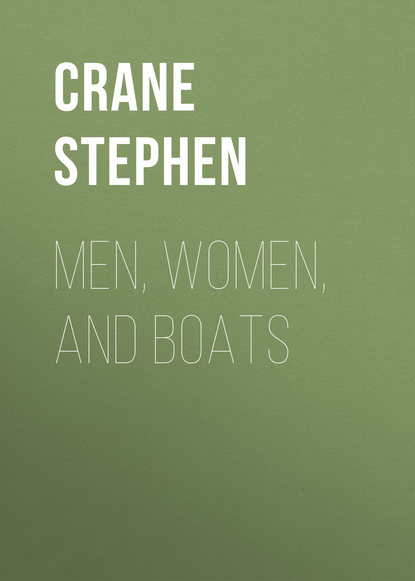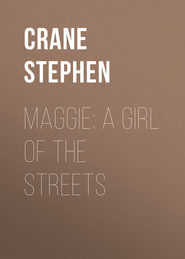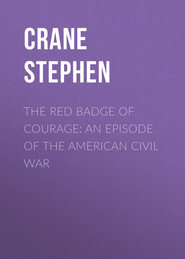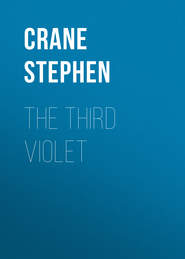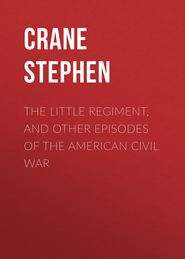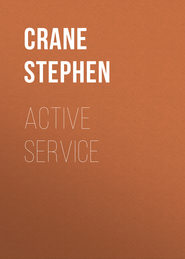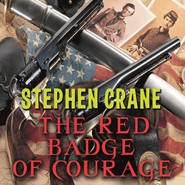По всем вопросам обращайтесь на: info@litportal.ru
(©) 2003-2025.
✖
Men, Women, and Boats
Автор
Год написания книги
2018
Настройки чтения
Размер шрифта
Высота строк
Поля
"I was delighted to hear from you, and was much interested to see the article on Stephen Crane you sent me. It seems to me the harsh judgment of an unappreciative, commonplace person on a man of genius. Stephen had many qualities which lent themselves to misapprehension, but at the core he was the finest of men, generous to a fault, with something of the old-time recklessness which used to gather in the ancient literary taverns of London. I always fancied that Edgar Allan Poe revisited the earth as Stephen Crane, trying again, succeeding again, failing again, and dying ten years sooner than he did on the other occasion of his stay on earth.
"When your letter came I had just returned from Dover, where I stayed four days to see Crane off for the Black Forest. There was a thin thread of hope that he might recover, but to me he looked like a man already dead. When he spoke, or, rather, whispered, there was all the accustomed humor in his sayings. I said to him that I would go over to the Schwarzwald in a few weeks, when he was getting better, and that we would take some convalescent rambles together. As his wife was listening he said faintly: 'I'll look forward to that,' but he smiled at me, and winked slowly, as much as to say: 'You damned humbug, you know I'll take no more rambles in this world.' Then, as if the train of thought suggested what was looked on before as the crisis of his illness, he murmured: 'Robert, when you come to the hedge—that we must all go over— it isn't bad. You feel sleepy—and—you don't care. Just a little dreamy curiosity—which world you're really in—that's all.'
"To-morrow, Saturday, the 9th, I go again to Dover to meet his body. He will rest for a little while in England, a country that was always good to him, then to America, and his journey will be ended.
"I've got the unfinished manuscript of his last novel here beside me, a rollicking Irish tale, different from anything he ever wrote before. Stephen thought I was the only person who could finish it, and he was too ill for me to refuse. I don't know what to do about the matter, for I never could work up another man's ideas. Even your vivid imagination could hardly conjecture anything more ghastly than the dying man, lying by an open window overlooking the English channel, relating in a sepulchral whisper the comic situations of his humorous hero so that I might take up the thread of his story.
"From the window beside which I write this I can see down in the valley Ravensbrook House, where Crane used to live and where Harold Frederic, he and I spent many a merry night together. When the Romans occupied Britain, some of their legions, parched with thirst, were wandering about these dry hills with the chance of finding water or perishing. They watched the ravens, and so came to the stream which rises under my place and flows past Stephen's former home; hence the name, Ravensbrook.
"It seems a strange coincidence that the greatest modern writer on war should set himself down where the greatest ancient warrior, Caesar, probably stopped to quench his thirst.
"Stephen died at three in the morning, the same sinister hour which carried away our friend Frederic nineteen months before. At midnight, in Crane's fourteenth-century house in Sussex, we two tried to lure back the ghost of Frederic into that house of ghosts, and to our company, thinking that if reappearing were ever possible so strenuous a man as Harold would somehow shoulder his way past the guards, but he made no sign. I wonder if the less insistent Stephen will suggest some ingenious method by which the two can pass the barrier. I can imagine Harold cursing on the other side, and welcoming the more subtle assistance of his finely fibred friend.
"I feel like the last of the Three Musketeers, the other two gone down in their duel with Death. I am wondering if, within the next two years, I also shall get the challenge. If so, I shall go to the competing ground the more cheerfully that two such good fellows await the outcome on the other side.
"Ever your friend,
"ROBERT BARR."
The last of the Three Musketeers is gone, now, although he outlived his friends by some years. Robert Barr died in 1912. Perhaps they are still debating a joint return.
There could be, perhaps, no better close for a paper on Stephen Crane than the subjoined paragraph from a letter written by him to a Rochester editor:—
"The one thing that deeply pleases me is the fact that men of sense invariably believe me to be sincere. I know that my work does not amount to a string of dried beans—I always calmly admit it—but I also know that I do the best that is in me without regard to praise or blame. When I was the mark for every humorist in the country, I went ahead; and now when I am the mark for only fifty per cent of the humorists of the country, I go ahead; for I understand that a man is born into the world with his own pair of eyes, and he is not at all responsible for his vision—he is merely responsible for his quality of personal honesty. To keep close to this personal honesty is my supreme ambition."
VINCENT STARRETT.
THE OPEN BOAT
A Tale intended to be after the fact. Being the experience of four men from the sunk steamer "Commodore"
I
None of them knew the color of the sky. Their eyes glanced level, and were fastened upon the waves that swept toward them. These waves were of the hue of slate, save for the tops, which were of foaming white, and all of the men knew the colors of the sea. The horizon narrowed and widened, and dipped and rose, and at all times its edge was jagged with waves that seemed thrust up in points like rocks. Many a man ought to have a bath-tub larger than the boat which here rode upon the sea. These waves were most wrongfully and barbarously abrupt and tall, and each froth-top was a problem in small-boat navigation.
The cook squatted in the bottom and looked with both eyes at the six inches of gunwale which separated him from the ocean. His sleeves were rolled over his fat forearms, and the two flaps of his unbuttoned vest dangled as he bent to bail out the boat. Often he said: "Gawd! That was a narrow clip." As he remarked it he invariably gazed eastward over the broken sea.
The oiler, steering with one of the two oars in the boat, sometimes raised himself suddenly to keep clear of water that swirled in over the stern. It was a thin little oar and it seemed often ready to snap.
The correspondent, pulling at the other oar, watched the waves and wondered why he was there.
The injured captain, lying in the bow, was at this time buried in that profound dejection and indifference which comes, temporarily at least, to even the bravest and most enduring when, willy nilly, the firm fails, the army loses, the ship goes down. The mind of the master of a vessel is rooted deep in the timbers of her, though he commanded for a day or a decade, and this captain had on him the stern impression of a scene in the greys of dawn of seven turned faces, and later a stump of a top-mast with a white ball on it that slashed to and fro at the waves, went low and lower, and down. Thereafter there was something strange in his voice. Although steady, it was, deep with mourning, and of a quality beyond oration or tears.
"Keep 'er a little more south, Billie," said he.
"'A little more south,' sir," said the oiler in the stern.
A seat in this boat was not unlike a seat upon a bucking broncho, and by the same token, a broncho is not much smaller. The craft pranced and reared, and plunged like an animal. As each wave came, and she rose for it, she seemed like a horse making at a fence outrageously high. The manner of her scramble over these walls of water is a mystic thing, and, moreover, at the top of them were ordinarily these problems in white water, the foam racing down from the summit of each wave, requiring a new leap, and a leap from the air. Then, after scornfully bumping a crest, she would slide, and race, and splash down a long incline, and arrive bobbing and nodding in front of the next menace.
A singular disadvantage of the sea lies in the fact that after successfully surmounting one wave you discover that there is another behind it just as important and just as nervously anxious to do something effective in the way of swamping boats. In a ten-foot dingey one can get an idea of the resources of the sea in the line of waves that is not probable to the average experience which is never at sea in a dingey. As each slatey wall of water approached, it shut all else from the view of the men in the boat, and it was not difficult to imagine that this particular wave was the final outburst of the ocean, the last effort of the grim water. There was a terrible grace in the move of the waves, and they came in silence, save for the snarling of the crests.
In the wan light, the faces of the men must have been grey. Their eyes must have glinted in strange ways as they gazed steadily astern. Viewed from a balcony, the whole thing would doubtless have been weirdly picturesque. But the men in the boat had no time to see it, and if they had had leisure there were other things to occupy their minds. The sun swung steadily up the sky, and they knew it was broad day because the color of the sea changed from slate to emerald-green, streaked with amber lights, and the foam was like tumbling snow. The process of the breaking day was unknown to them. They were aware only of this effect upon the color of the waves that rolled toward them.
In disjointed sentences the cook and the correspondent argued as to the difference between a life-saving station and a house of refuge. The cook had said: "There's a house of refuge just north of the Mosquito Inlet Light, and as soon as they see us, they'll come off in their boat and pick us up."
"As soon as who see us?" said the correspondent.
"The crew," said the cook.
"Houses of refuge don't have crews," said the correspondent. "As I understand them, they are only places where clothes and grub are stored for the benefit of shipwrecked people. They don't carry crews."
"Oh, yes, they do," said the cook.
"No, they don't," said the correspondent.
"Well, we're not there yet, anyhow," said the oiler, in the stern.
"Well," said the cook, "perhaps it's not a house of refuge that I'm thinking of as being near Mosquito Inlet Light. Perhaps it's a life-saving station."
"We're not there yet," said the oiler, in the stern.
II
As the boat bounced from the top of each wave, the wind tore through the hair of the hatless men, and as the craft plopped her stern down again the spray splashed past them. The crest of each of these waves was a hill, from the top of which the men surveyed, for a moment, a broad tumultuous expanse, shining and wind-riven. It was probably splendid. It was probably glorious, this play of the free sea, wild with lights of emerald and white and amber.
"Bully good thing it's an on-shore wind," said the cook; "If not, where would we be? Wouldn't have a show."
"That's right," said the correspondent.
The busy oiler nodded his assent.
Then the captain, in the bow, chuckled in a way that expressed humor, contempt, tragedy, all in one. "Do you think We've got much of a show now, boys?" said he.
Whereupon the three were silent, save for a trifle of hemming and hawing. To express any particular optimism at this time they felt to be childish and stupid, but they all doubtless possessed this sense of the situation in their mind. A young man thinks doggedly at such times. On the other hand, the ethics of their condition was decidedly against any open suggestion of hopelessness. So they were silent.
"Oh, well," said the captain, soothing his children, "We'll get ashore all right."
But there was that in his tone which made them think, so the oiler quoth: "Yes! If this wind holds!"
The cook was bailing: "Yes! If we don't catch hell in the surf."
Canton flannel gulls flew near and far. Sometimes they sat down on the sea, near patches of brown seaweed that rolled on the waves with a movement like carpets on a line in a gale. The birds sat comfortably in groups, and they were envied by some in the dingey, for the wrath of the sea was no more to them than it was to a covey of prairie chickens a thousand miles inland. Often they came very close and stared at the men with black bead-like eyes. At these times they were uncanny and sinister in their unblinking scrutiny, and the men hooted angrily at them, telling them to be gone. One came, and evidently decided to alight on the top of the captain's head. The bird flew parallel to the boat and did not circle, but made short sidelong jumps in the air in chicken-fashion. His black eyes were wistfully fixed upon the captain's head. "Ugly brute," said the oiler to the bird. "You look as if you were made with a jack-knife." The cook and the correspondent swore darkly at the creature. The captain naturally wished to knock it away with the end of the heavy painter; but he did not dare do it, because anything resembling an emphatic gesture would have capsized this freighted boat, and so with his open hand, the captain gently and carefully waved the gull away. After it had been discouraged from the pursuit the captain breathed easier on account of his hair, and others breathed easier because the bird struck their minds at this time as being somehow grewsome and ominous.
In the meantime the oiler and the correspondent rowed And also they rowed.
They sat together in the same seat, and each rowed an oar. Then the oiler took both oars; then the correspondent took both oars; then the oiler; then the correspondent. They rowed and they rowed. The very ticklish part of the business was when the time came for the reclining one in the stern to take his turn at the oars. By the very last star of truth, it is easier to steal eggs from under a hen than it was to change seats in the dingey. First the man in the stern slid his hand along the thwart and moved with care, as if he were of Sèvres. Then the man in the rowing seat slid his hand along the other thwart. It was all done with most extraordinary care. As the two sidled past each other, the whole party kept watchful eyes on the coming wave, and the captain cried: "Look out now! Steady there!"
The brown mats of seaweed that appeared from time to time were like islands, bits of earth. They were traveling, apparently, neither one way nor the other. They were, to all intents, stationary. They informed the men in the boat that it was making progress slowly toward the land.





